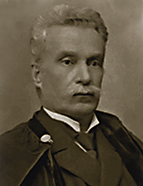

It is acknowledged that Portugal has distinguished itself in the arts of sculpture, architecture, painting, and music, and has produced "artists of great merit" (Idem, 1870, p. X). While recognising the importance of studying related fields such as drawing, engraving, lithography, photography, ceramics, epigraphy, and philology, he expresses surprise that there is no comprehensive history of the fine arts in Portugal and at the widespread ignorance of the names of national artists. Due to this gap, in mid-1872, he circulated a prospectus for publication in newspapers advertised as a repository of research on history of the arts in the Iberian Peninsula: Arqueologia Artística , the first instalment of which was dedicated to the lyric soprano Luísa Todi (1873).
The criticism of António Feliciano de Castilho's translation of Goethe's Fausto [Faust] (1872), and the public controversy that followed, reveal him to be a determined and exacting polemicist. He also demonstrates a keen methodological approach when he says, quoting Goethe, that everything we think has already been thought, but what we can claim as our own is the process by which we again think and study subjects that have already been explored (1873). The controversy with Castilho's advocates (known as the "Faust Question") was closely followed in Berlin by his future wife, the philologist Carolina Wilhelm Michaëlis, who was then working as an interpreter in Hispanic languages for the German Ministry of the Interior. This sparked an exchange of letters between the 24-year-old Joaquim de Vasconcelos and Michaëlis. They were married civilly in Berlin in March (1876) and settled in Porto in June of the same year. In 1877, they had their only son, Carlos Joaquim, who studied in Berlin and graduated as a mechanical engineer.
He affirms his intellectual and moral affiliation with Germany, the country where the creation of the ideal state — the republic of the wise, or republic of letters (Gelehrtenrepublik) — was realised through an artistic cosmopolitanism and a communism of the spirit. The evidence that the monuments are deteriorating (with the exception of occasional efforts to preserve Jerónimos and Batalha), the lack of resources for research, the scarcity seen at libraries and archives, and the absence of an audience to support the continuation of scholarly work, are recurring themes in his reflections. The comparative approach in the artistic studies of the Polish count and diplomat Atanazi Raczynski, who lived in Portugal in the 1840s, along with the issues he raised (including the case of the painter Grão Vasco), captivated his admiration. With Raczynski's death in 1874, and in fact, with his diplomatic transfer to Spain in 1848, Vasconcelos notes a hiatus — a lack of continuity in artistic studies — marked by only a few exceptions, which were not sufficient to establish a trend. Instead of striving to investigate and establish artistic facts, he observes a situation where work is never rewarded in proportion to the energy and dedication invested. The cheerful willingness to remain immersed in archives and papers, however, reveals a troubling tendency he identifies as the "pat-on-the-back disease" among researchers, publicists, and onlookers. This situation leads him towards a form of active pessimism. It is at this point that he analyses the "creeping and servile courtesy of the Portuguese" (O Consumado Germanista... [The Consummate Germanist...], 1873, p. 5) and the insistence on ostentation that the decadence becomes apparent in the face of the two aspects that make or break a nation: moral and intellectual existence.
This work is financed by national funds through FCT - Foundation for Science and Technology, I.P, in the scope of the projects UIDB/04311/2020 and UIDP/04311/2020.
